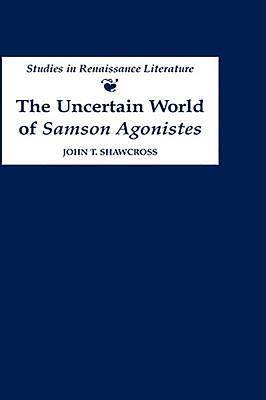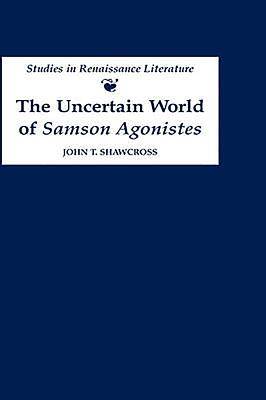
- Afhalen na 1 uur in een winkel met voorraad
- Gratis thuislevering in België vanaf € 30
- Ruim aanbod met 7 miljoen producten
- Afhalen na 1 uur in een winkel met voorraad
- Gratis thuislevering in België vanaf € 30
- Ruim aanbod met 7 miljoen producten
Zoeken
Omschrijving
Shawcross proposes that the many ambiguities surrounding Milton's dramatic poem 'Samson Agonistes' are intentional: the actual words, the dates of composition, the genre, and the characters - particularly Samson and Dalila but including Manoa, Harapha, and the Chorus. Ambiguity also lies in Milton's presentation of political issues both philosophical and practical, his treatment of gender concepts, the constant questioning of the reader, and the poem's effect. Discussing all these elements, Shawcross follows with a detailed reading of the text which argues that it remains purposefully ambiguous, reflecting Milton's own recognition of the uncertainty of the content, and suggesting that Milton himself would question some of the nice 'solutions' that modern scholarship has offered in the last two decades. JOHN SHAWCROSS is Professor of English, Emeritus, University of Kentucky.
Specificaties
Betrokkenen
- Auteur(s):
- Uitgeverij:
Inhoud
- Aantal bladzijden:
- 168
- Taal:
- Engels
- Reeks:
- Reeksnummer:
- nr. 6
Eigenschappen
- Productcode (EAN):
- 9780859916097
- Verschijningsdatum:
- 1/02/2001
- Uitvoering:
- Hardcover
- Formaat:
- Genaaid
- Afmetingen:
- 162 mm x 243 mm
- Gewicht:
- 421 g

Alleen bij Standaard Boekhandel
+ 354 punten op je klantenkaart van Standaard Boekhandel
Beoordelingen
We publiceren alleen reviews die voldoen aan de voorwaarden voor reviews. Bekijk onze voorwaarden voor reviews.








